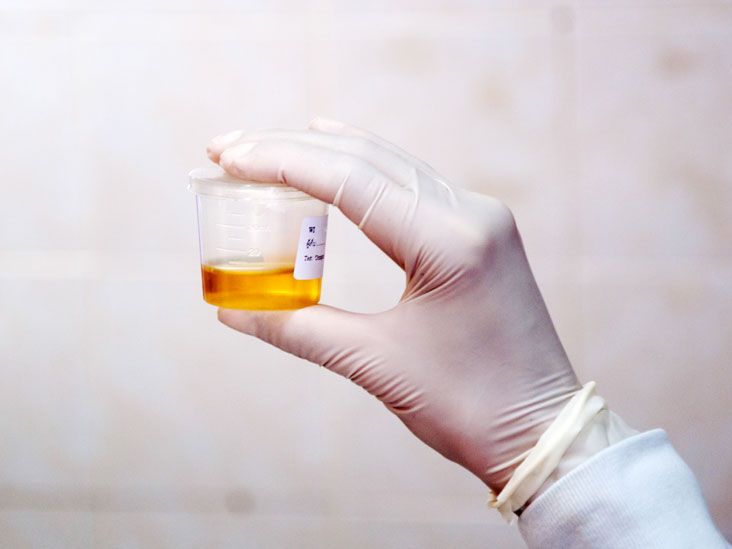Creatinine is a chemical waste product of creatine; and creatine is a chemical made by the body and is used to supply energy mainly to muscles. Cr test will do to see how well one’s kidneys work. Creatinine is removed from the body entirely by the kidneys.
The kidneys maintain the blood creatinine in a normal range. Creatinine is a fairly reliable indicator of kidney function. Elevated Cr level signifies impaired kidney function or kidney disease.
As the kidneys become impaired for any reason, the creatinine level in the blood will rise due to poor clearance of creatinine by the kidneys. Abnormally high levels of creatinine thus warn of possible malfunction or failure of the kidneys.
Creatinine Clearance
A more precise measure of kidney function can be estimated by calculating how much creatinine is cleared from the body by the kidneys. This is referred to as creatinine clearance and it estimates the rate of filtration by kidneys (glomerular filtration rate, or GFR). Creatinine clearance can be measured in two ways.
- It can be calculated (estimated) by a formula using serum (blood) creatinine level, patient’s weight, and age. The formula is 140 minus the patient’s age in years times their weight in kilograms (times 0.85 for women), divided by 72 times the serum creatinine level in mg/dL.
- Creatinine clearance can also be more directly measured by collecting a 24-hour urine sample and then drawing a blood sample. The creatinine levels in both urine and blood are determined and compared.
Normal creatinine clearance for healthy 0.7 to 1.3 mg/dL (61.9 to 114.9 µmol/L) for men and 0.6 to 1.1 mg/dL (53 to 97.2 µmol/L) for women.
Blood urea nitrogen (BUN) level is another indicator of kidney function. Urea is also a metabolic byproduct that can build up if kidney function is impaired. The BUN-to-creatinine ratio generally provides more precise information about kidney function and its possible underlying cause compared with creatinine level alone. The ideal ratio of BUN to creatinine falls between 10-to-1 and 20-to-1. Having a ratio above this range could mean the person may not be getting enough blood flow to his kidneys and could have conditions such as congestive heart failure, dehydration, or gastrointestinal bleeding. BUN also increases with dehydration.
Recently, elevated creatinine levels in infants were associated with bacteremia while elevated levels in adult males have been linked to an increased risk of prostate cancer.
Normal blood creatinine levels
Normal levels of creatinine in the blood are approximately 0.6 to 1.2 milligrams (mg) per deciliter (dL) in adult males and 0.5 to 1.1 milligrams per deciliter in adult females. (a deciliter is a unit of volume equal to one-tenth of a liter).
What are considered high and low creatinine levels
A person with only one kidney may have a normal level of about 1.8 or 1.9. High creatinine levels that reach 2.0 or more in babies and 5.0 or more in adults may indicate severe kidney impairment.
The need for a dialysis machine to remove waste from the blood is based upon several considerations including the BUN, creatinine level, potassium level, and how much fluid the patient is retaining. Low creatinine levels indicate malnutrition, severe weight loss, long term illness, and low muscle mass such as in the elderly and infant
Symptoms associated with high Cr levels
The symptoms of kidney dysfunction (renal insufficiency) vary widely. They generally do not correlate with the level of creatinine in the blood.
Some people may have an incidental finding of severe kidney disease and elevated creatinine on routine blood work without having any symptoms. In others, depending on the cause of the problem, different symptoms of kidney failure may be present including:
- Dehydration.
- fatigue.
- loss of appetite, nausea, vomiting.
- Insomnia.
- Excessive urination or lower than normal urination.
- Swelling (edema).
- Shortness of breath.
- Confusion.
What causes elevated (high) levels in the blood?
Any condition that impairs the function of the kidneys is likely to raise the creatinine level in the blood. It is important to recognize whether the process leading to kidney dysfunction (kidney failure, azotemia) is longstanding or recent.
The most common causes of longstanding (chronic) kidney disease in adults are:
- High blood pressure.
- Diabetes.
- Certain allopathic drugs (for example, cimetidine) can sometimes cause abnormally elevated creatinine levels.
- Serum creatinine can also transiently increase after ingestion of a large amount of broiler meat; thus, nutrition can sometimes play a role in creatinine measurement.
- Kidney infections, rhabdomyolysis (abnormal muscle breakdown), and urinary tract obstruction may also elevate creatinine levels.
P. S: This article is only for doctors having good knowledge about Homeopathy and allopathy, for learning purpose(s).
For proper consultation and treatment, please visit our clinic.
None of above-mentioned medicine(s) is/are the full/complete treatment but just hints for treatment; every patient has his/her own constitutional medicine.
 Dr. Sayyad Qaisar Ahmed (MD {Ukraine}, DHMS), Abdominal Surgeries, Oncological surgeries, Gastroenterologist, Specialist Homeopathic Medicines.
Dr. Sayyad Qaisar Ahmed (MD {Ukraine}, DHMS), Abdominal Surgeries, Oncological surgeries, Gastroenterologist, Specialist Homeopathic Medicines.
Senior research officer at Dnepropetrovsk state medical academy Ukraine.
Location: Al-Haytham clinic, Umer Farooq Chowk Risalpur Sadder (0923631023, 03119884588), K.P.K, Pakistan.
Find more about Dr Sayed Qaisar Ahmed at:
https://www.youtube.com/Dr Qaisar Ahmed
https://www.facebook.com/ahmed drqaisar


